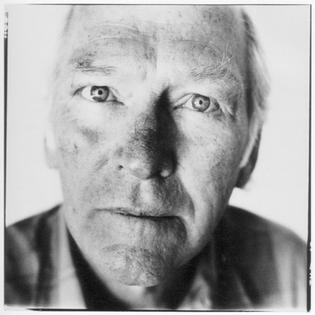A Quote by Donald Davidson
Nothing in the world, no object or event, would be true or false if there were not thinking creatures.
Related Quotes
Either Christianity is true or it's false. If you bet that it's true, and you believe in God and submit to Him, then if it IS true, you've gained God, heaven, and everything else. If it's false, you've lost nothing, but you've had a good life marked by peace and the illusion that ultimately, everything makes sense. If you bet that Christianity is not true, and it's false, you've lost nothing. But if you bet that it's false, and it turns out to be true, you've lost everything and you get to spend eternity in hell.
Don't lies eventually lead to the truth? And don't all my stories, true or false, tend toward the same conclusion? Don't they all have the same meaning? So what does it matter whether they are true or false if, in both cases, they are significant of what I have been and what I am? Sometimes it is easier to see clearly into the liar than into the man who tells the truth. Truth, like light, blinds. Falsehood, on the contrary, is a beautiful twilight that enhances every object.
You'd expect, as good Darwinian creatures, we would evolve to be fascinated with how the world really is, and we would use language to convey real-world information, we'd be obsessed with knowing the way things are, and we would entirely reject stories that aren't true. They're useless. But that's not the way we work.
All religions, plainly and simply, cannot be true. Some beliefs are false, and we know them to be false. So it does no good to put a halo on the notion of tolerance as if everything could be equally true. To deem all beliefs equally true is sheer nonsense for the simple reason that to deny that statement would also, then, be true. But if the denial of the statement is also true, then all religions are not true.
We're supposed to believe that oil had nothing to do with it, that if Iraq were exporting pickles or jelly and the center of world oil production were in the South Pacific that the United States would've liberated them anyway. It has nothing to do with the oil, what a crass idea. Anyone with their head screwed on knows that that can't be true.
I felt a great dislike to journeys, especially when they were long. But once I had started, I thought nothing of them, thinking of Him for Whose service they were undertaken and remembering that Our Lord would be praised and the most Holy Sacrament would dwell in the house I was going to found... It should be a great consolation to us - though many of us do not think of it - that Jesus Christ, true God and true man, dwells as He does in so many places in the most Holy Sacrament
Let's call something a rigid designator if in every possible world it designates the same object, a non-rigid or accidental designator if that is not the case. Of course we don't require that the objects exist in all possible worlds.... When we think of a property as essential to an object we usually mean that it is true of that object in any case where it would have existed. A rigid designator of a necessary existent can be called strongly rigid.
The conditions of a true critique and a true creation are the same: the destruction of an image of thought which presupposes itself and the genesis of the act of thinking in thought itself. Something in the world forces us to think. This something is an object not of recognition but of a fundamental encounter






































